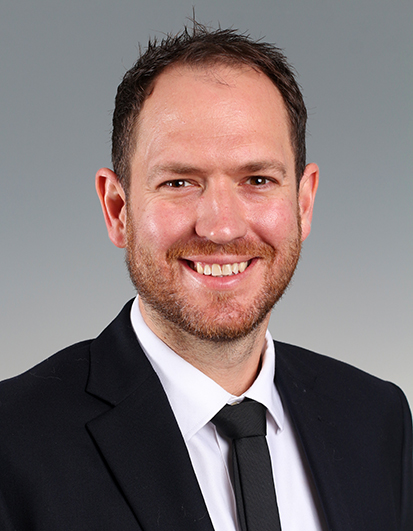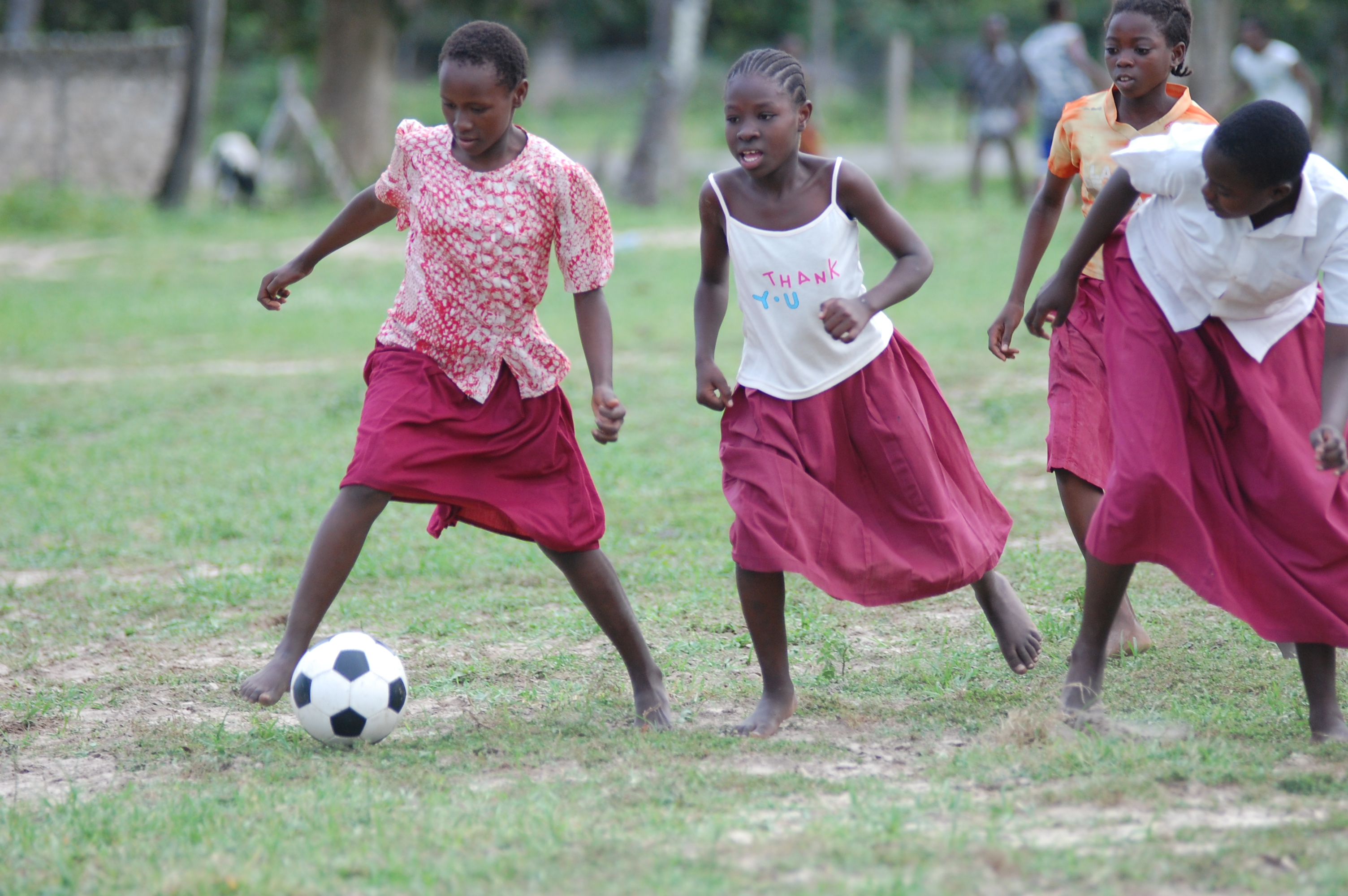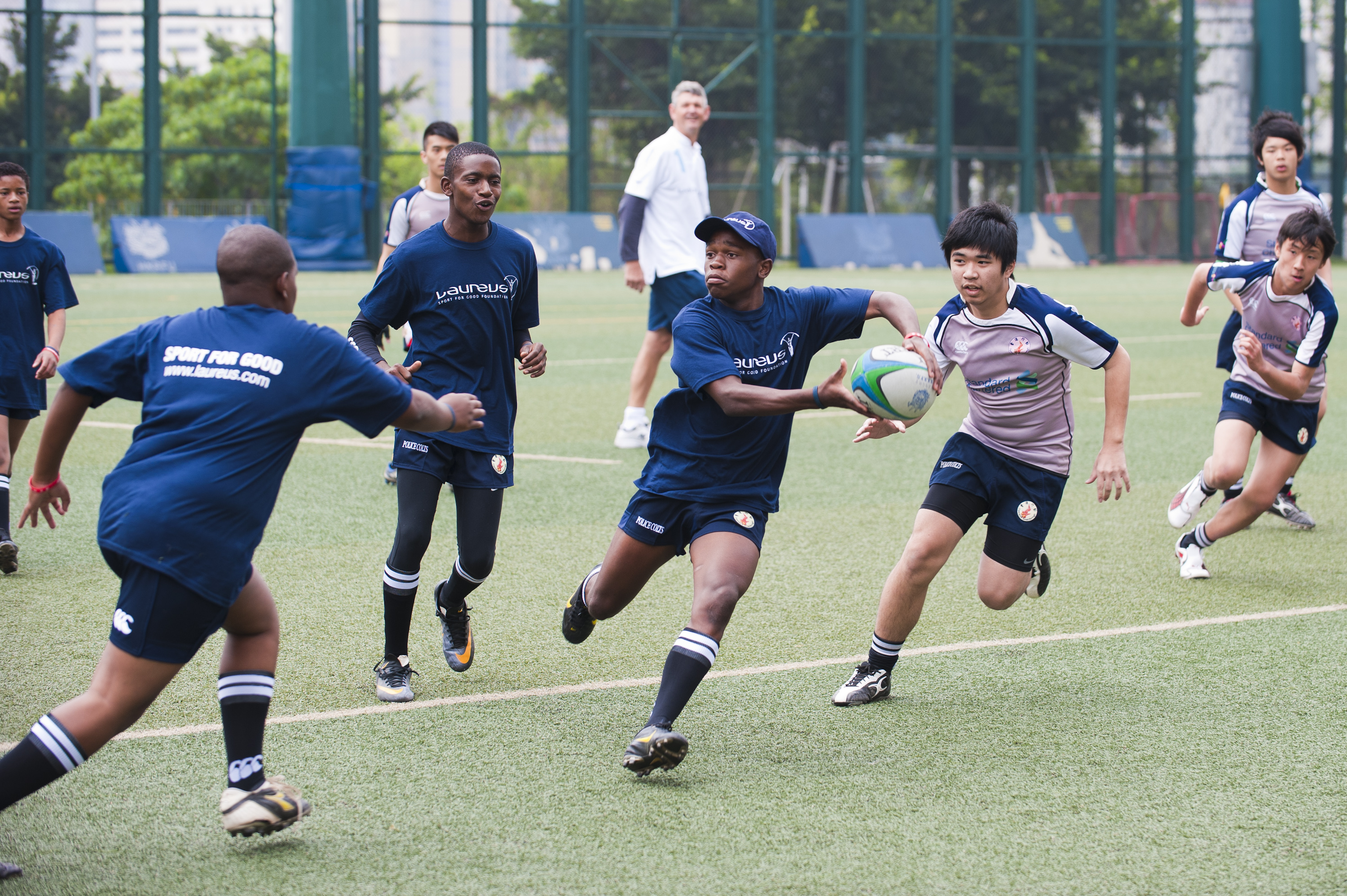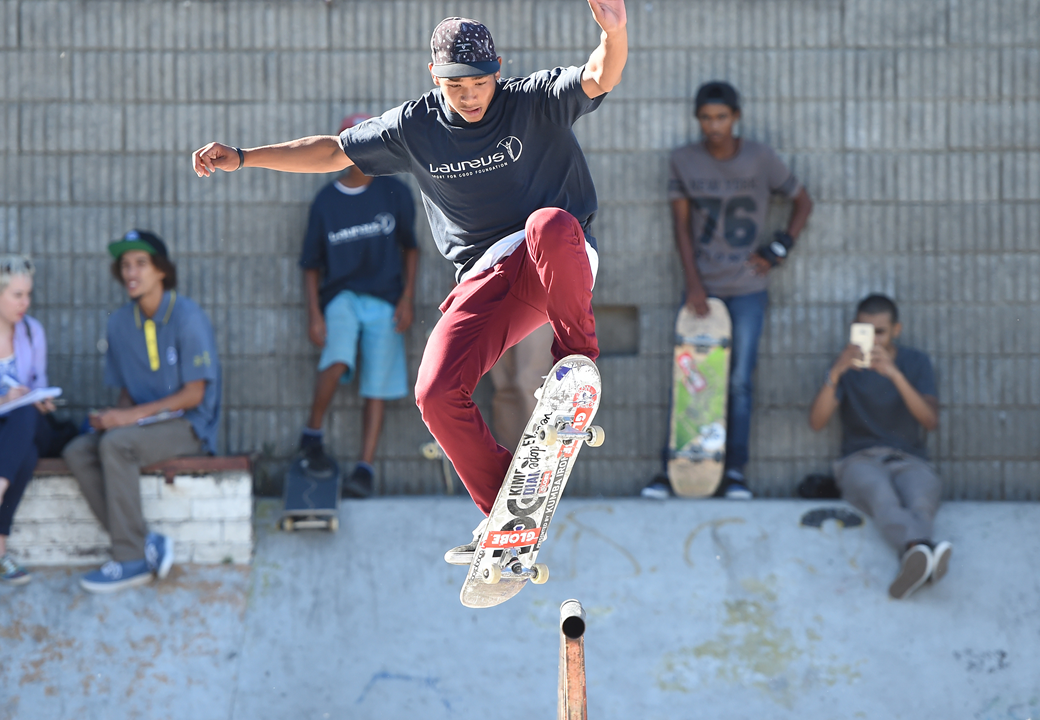 Each month ConnectSport works with the Sport for Development Coalition to create a 'call for articles' around a particular theme. Here Adam Fraser, Chief Executive of Laureus Sport for Good, opens the new decade by focusing on ‘Sport and sustainable development: The next 10 years’. Join us for our Twitter takeover on this theme with Laureus Sport for Good on Wednesday 29th January (8-9pm).
Each month ConnectSport works with the Sport for Development Coalition to create a 'call for articles' around a particular theme. Here Adam Fraser, Chief Executive of Laureus Sport for Good, opens the new decade by focusing on ‘Sport and sustainable development: The next 10 years’. Join us for our Twitter takeover on this theme with Laureus Sport for Good on Wednesday 29th January (8-9pm).
ConnectSport: The year 2020 marks 20 years since Nelson Mandela told us ‘Sport has the power to change the world’ at the Laureus World Sports Awards. This phrase is often used, but what did he mean in structural terms?
Adam: We have all heard those words many times and it has inspired an entire movement – not just at Laureus, where we are directly delivering on the challenge he put to us in that room, but all around the world. People quote that speech to me all the time without ever knowing it was delivered at a Laureus event, and organisationally we are incredibly proud that it has inspired a sector. It’s amazing to think it was delivered 20 years ago. It sounds so obvious now, and especially to those of us in the bubble of the Sport for Development sector, but this really was not an established idea at the time he delivered that speech. It was an entirely new way of thinking for many of the people in that room and for many people who have heard it since. I still don't think it is established in all quarters by any means – we have a long way to go – but to see sport now referred to around the Sustainable Development Goals, in the Kazan Action Plan, as a recognised tool by multiple governments and so on almost feels like the world has looked at Mandela’s speech and said: yes, this is another thing he was right about. And as you say, that is happening more and more at a structural level. We continue to see more Sport for Development programmes being established than ever before, each making a difference in their local communities – which is vital – but we also see more and more of them looking at their role in the idea of genuine systems change. For that to happen, of course, we need to ensure the data and the research is rigorous – at a standard of academic rigour that most of the evidence collected in this sector is yet to reach – but it still needs to be designed and focused in the right way; I am always conscious that we as a funder shouldn't be demanding top-down evidence purely to suit our criteria, and our own social biases if we really want to think of ourselves as community led. Even in this short answer I've spoken about everything from individual community programmes to the UN's global goals – that shows what a broad scope of work we have to deliver, from micro to macro, from practice to policy. And alongside that, there is the power of sport to inspire – I spoke at the UN in December, on the International Day of Persons with Disabilities, about Xia Boyu, the Chinese double amputee who summited Everest in 2018, and how he can change perceptions of disability in his home country. Or, if we want to stick with the Mandela theme, we can talk about the journey over 24 years from that moment in the stadium in 1995 to seeing Siya Kholisi lift the Rugby World Cup as a black captain of South Africa. Change does happen if you put the work in. Sometimes it might seem slow, and there is a long way to go – Martin Luther King said “the arc of the moral universe is long but bends towards justice,” but it only does that through people’s hard work and commitment to a vision. Every day we are trying to deliver Mandela’s vision – not just Laureus, but this whole sector.
As a sector or ‘movement’, how are we measuring up to this vision?
I think there are a couple of answers here. Firstly, it’s worth remembering: I think we as a sector are doing well. We are. Sport for Development is progressing, growing, making a difference. It’s easy to look at what we aren’t doing, of course. It’s easy to sit here and say we need to see this incredible proliferation of actors at grassroots level – the 200 programmes Laureus funds, the many hundreds we don’t – come together, capture their data and strengthen that policy-practice relationship, and we work really, really hard to try to make that happen. But equally, at a time when we are seeing something of a pushback against globalisation in some quarters, let’s not lose sight of the importance of that local delivery as the bedrock of this movement. And finally, when we do want to get beyond that local delivery – and sport unquestionably can do that even as a concept, whether we are thinking about the Olympic ethos of different nationalities, races and religions competing peacefully, or Mandela’s belief in sport breaking down racial barriers – I think we actually sometimes get it wrong in thinking of ourselves as a ‘sector’ or ‘movement’ in the way that we are discussing this now. Laureus aims to be a field builder, a sector builder, and that’s exactly what we should be doing – but at the same time, let’s not lose sight of the fact that Sport for Development is just a tool. It’s just one intervention. How we complement and collaborate with other sectors – education, healthcare, the justice system and so on – will more likely be the thing that drives change in society and in the wider SDG context.

Despite plenty of impetus and momentum, and no lack of effort from grassroots actors, the sector still seems diffuse and disparate. What do you think will help to really galvanise the movement over the next few years?
I think it is happening. We in the sector are sometimes the most critical of ourselves, and rightly so. You look at needless replication, wasted overheads, areas where two or three or ten programmes could be cooperating and sharing resources – and it’s right to try to change that, and a lot of our place-based, collective impact work is built on that premise – but as a sector we are far from alone in that. Every sector struggles with that balance of competition and cooperation, innovation versus scale and so on. But to try to answer your question, I think it will be galvanised by a combination of factors: the people in it, who are an incredible collection of self-starting leaders really devoted to making change; by tech and its ability to solve some of the problems of scale or logistics that previously seemed unavoidable; by the genuine love of sport that brings so many people into this sector; by the shift towards purpose-led business. All of those things are contributing to the growth of this movement – that last one is hugely exciting on its own. Equally, there is a risk to that word ‘purpose’ becoming a part of the common business vernacular – you run the risk of people taking any basic sport programme and claiming it’s Sport for Development because that’s now what you need to call yourself to get funding, whether from Sport England, a corporate partner, or wherever. And that’s a risk as it dilutes the quality of the work that is being tagged as Sport for Development in people’s minds when really it is just sport. But you have to take the rough with the smooth, because that shift to purpose-led thinking provides a huge opportunity: for years we have been talking about charities needing to be more like businesses; now businesses are looking at how to be more like charities. And this sector has some of the answers they are looking for. As we tie that into some of the things we talked about before: the need to achieve the SDGs, the UN throwing their weight behind the concept of sport and physical activity as an enabler of sustainable development, the opportunities will be there.

How does your role as Chief Executive of Laureus Sport for Good intersect with these actors?
I think the important thing Laureus Sport for Good offers as an intermediary funder – and a good one, with a strong Funder+ Model of technical support and capacity building that means we can easily point to the value we add in the equation and don’t have to spend too long justifying our own role – is this position as a neutral backbone, or a safe space for brands to invest in this work. We have always been a bridge between funders and programmes. We know our programme partners tell us things and are open with us in a way that is often very hard for programmes to be with their funding partners, because we don’t punish people for telling us when things go wrong – we prefer to learn alongside them. And conversely, we have more of a capability to speak truth to power than some organisations do – to turn to our funders and say “this doesn’t work for the programme on the ground or the young people it serves” – and that in itself has meant that we can provide an essential link. Our funders know we will ensure their brands are not put at risk. Our partners on the ground know we will put their beneficiaries first. And those things together mean you can really start to build meaningful collaboration between multiple actors. And that is necessary when it comes to achieving the Sustainable Development Goals – as just one example – because the gap between the funding going into international development and the funding needed to genuinely achieve the SDGs is between $2.5 trillion and $5 trillion per year depending on which report you read. It needs business partnering with government, it needs nonprofits and social enterprises looking at how to cooperate. So we have a responsibility to try to bring those actors together and play the role of a force multiplier if we want to really believe that they can be achieved. In our 20th anniversary year we have been talking a lot about the concept ‘Sport Unites Us’ and it isn’t just a tagline – it’s an aspiration.

Looking across all of the SDGs, including environmental aspects, what can sport genuinely hope to contribute to society as we look towards the next decade and Agenda 2030?
I think the possibilities are endless. We can look at ourselves, within Laureus, and see so much more we can do – in scale, leading in knowledge sharing, championing the sector from an advocacy perspective and more. We do a lot of things well but there a lot of things we can do even better. When you scale that across the many brilliant organisations working in this space, there is so much we can achieve. The sport industry also needs to look at itself critically, let’s be honest, when it comes to the order in which people and planet are sometimes placed versus profit, or the environmental sustainability of the global sport industry, or the other challenges we are all so aware of. But with that combination of sport’s unique capacity to inspire, to unite, to speak to youth, to break down barriers – and it’s interesting how often we come back to quoting Mandela – and the increased rigour, the measurable outcomes and provable data we are committed to, we can help drive change at a whole new level over the next 10 years. Whether we are talking about ending poverty, promoting gender justice, breaking down racial barriers or so many other factors, Sport for Development can play a role in building a more equitable society and in providing innovative and alternative solutions to some of society’s biggest challenges. We need to do that in the developing world and in the developed world, in large cities and small towns, in communities all around the world – because sport really can speak to people from all those different backgrounds. It’s a hugely exciting space to be working in. There is a lot to do, but I believe that we – working together – genuinely can do it.
To find out more about Laureus Sport for Good, visit its page on the ConnectSport directory. To add your organisation for free, contact hello@connectsport.co.uk.













